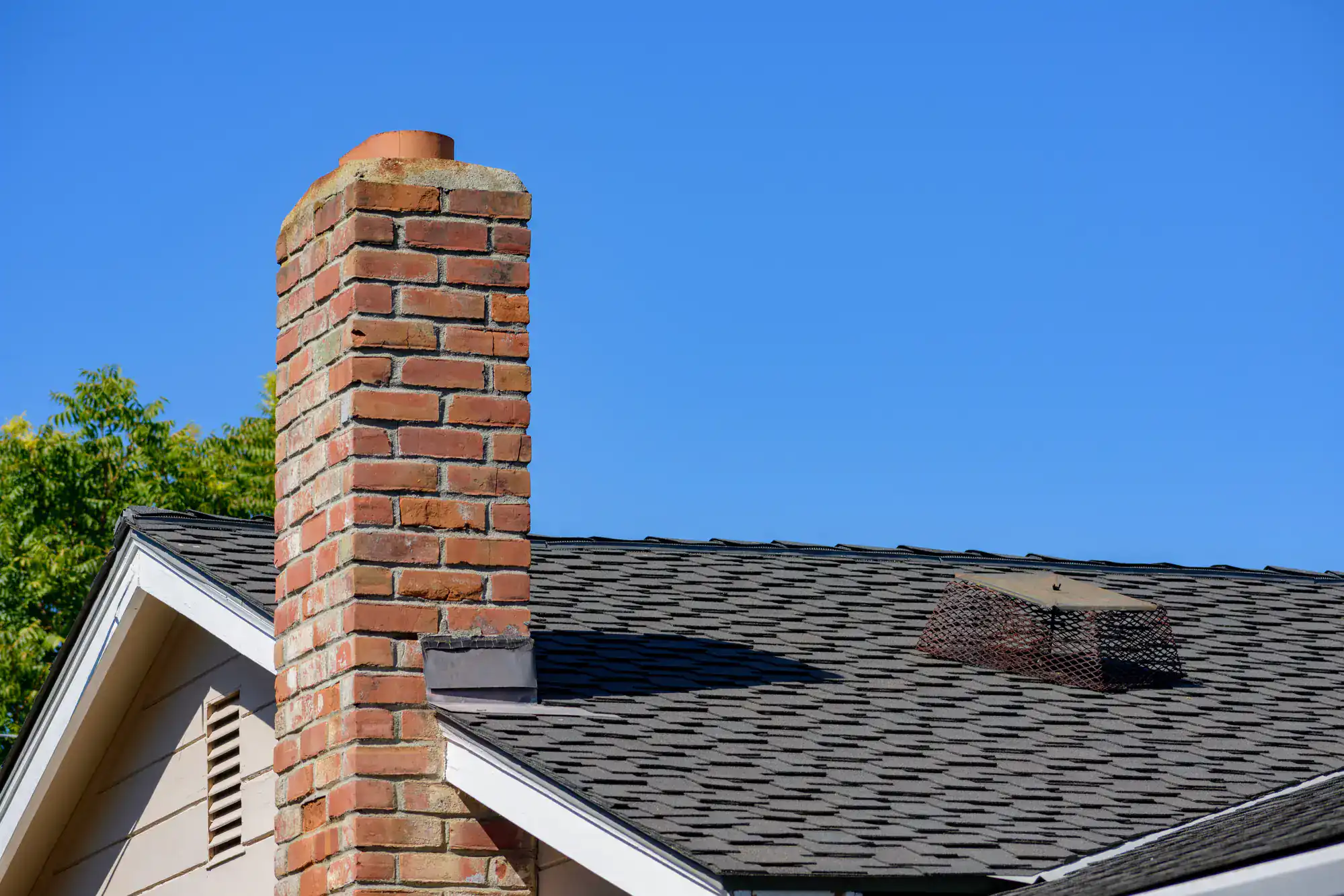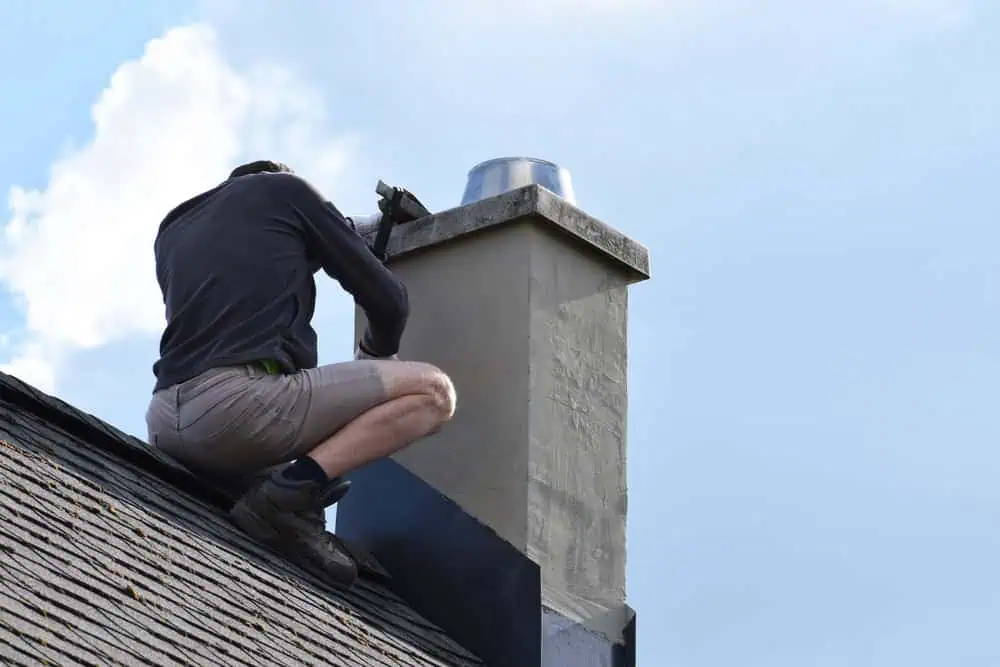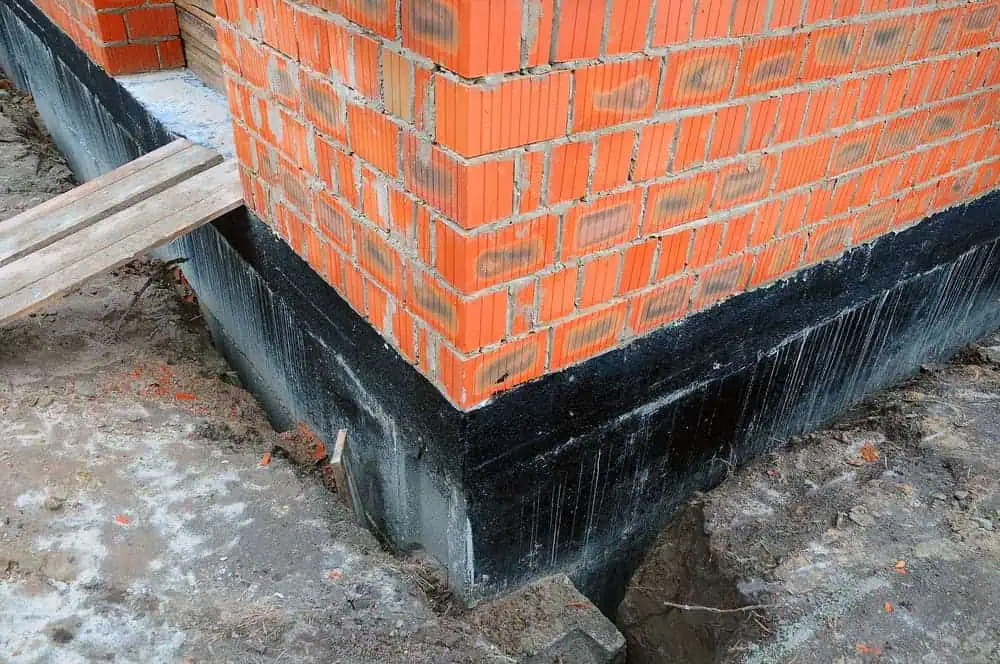Summary:
What Is Chimney Repointing and When Do You Need It?
Chimney repointing involves removing deteriorated mortar from between bricks and replacing it with fresh mortar. Think of it as giving your chimney new joints while keeping the existing bricks intact.
This repair works when your bricks are still solid but the mortar holding them together has started to crumble, crack, or wash away. The process literally holds your chimney together and prevents water from seeping into the structure.
Signs Your Boston Chimney Needs Repointing
Boston’s freeze-thaw cycles are particularly hard on chimney mortar. Water gets into tiny cracks, freezes during winter, expands, and gradually destroys the mortar joints. You’ll typically see this damage first on the side of your chimney that faces the worst weather.
Look for white chalky deposits on your bricks—that’s efflorescence, and it means water is getting where it shouldn’t. Crumbling mortar that you can scrape out with a screwdriver is another clear sign. Small pieces of mortar in your yard after storms? Your chimney’s telling you it needs help.
The good news is that repointing catches these problems before they require a complete rebuild. Most Boston homeowners spend between $500 and $2,500 on repointing, depending on the chimney’s height and how much mortar needs replacement. Compare that to a full rebuild that can easily hit $12,000 or more.
Professional repointing typically lasts 15-20 years when done correctly. The key is using mortar that matches the original in both strength and composition—too hard, and it can actually crack your bricks. Too soft, and it won’t last through Boston’s weather extremes.
The Repointing Process: What to Expect
Professional repointing starts with carefully removing the old, damaged mortar without harming the surrounding bricks. We use specialized tools to grind out mortar to a specific depth—usually about twice the width of the joint.
Next comes mixing the new mortar to match both the strength and color of your original mortar. This isn’t guesswork; we analyze your existing mortar to get the formula right. Using the wrong mortar type is one of the biggest mistakes that leads to premature failure.
The new mortar gets packed into the cleaned joints and shaped to match your chimney’s original profile. Proper curing is critical—the mortar needs to dry slowly to reach full strength. That’s why timing matters; extreme heat or cold during curing can weaken the repair.
After repointing, we often recommend waterproofing to protect your investment. A breathable water repellent allows moisture vapor to escape while blocking liquid water from entering the masonry. This extra step can significantly extend the life of your repointing work, especially important given Boston’s wet springs and harsh winters.
When Your Chimney Needs Complete Rebuilding
Chimney rebuilding means tearing down the damaged structure and building it back up with new materials. This is major work that’s necessary when the chimney’s structural integrity is compromised beyond what repointing can fix.
You’re looking at rebuilding when the bricks themselves are failing, the chimney is leaning, or when damage extends throughout multiple sections of the structure. It’s the nuclear option—more expensive but sometimes the only safe choice.
Clear Signs You Need a Complete Chimney Rebuild
Structural problems demand rebuilding, not repointing. If your chimney is visibly leaning, has large sections of missing or loose bricks, or shows extensive cracking throughout the structure, repointing won’t solve the underlying issues.
Water damage that’s penetrated deep into the chimney often requires rebuilding. When the interior flue tiles are cracked, the chimney crown is severely damaged, or you’re seeing rust stains from failing metal components, the damage has likely spread beyond what surface repairs can address.
Age plays a role too. Chimneys built before modern building codes might need complete reconstruction to meet current safety standards. If your Boston home is over 100 years old and the chimney has never been rebuilt, a professional inspection can determine whether the structure meets today’s requirements.
Repeated chimney repairs are another red flag. If you’ve had the chimney repointed multiple times and problems keep recurring, the underlying structure may be failing. At some point, continued repairs become more expensive than rebuilding, and you’re still left with an unreliable chimney.
Rebuilding Costs and What's Included
Complete chimney rebuilds in the Boston area typically range from $8,000 to $15,000, depending on the chimney’s height, complexity, and materials chosen. This includes tearing down the existing structure, disposing of old materials, and building the new chimney to current codes.
A proper rebuild includes new flue tiles, a properly constructed crown, updated flashing, and often a new chimney cap. The foundation and lower structure usually remain, but everything from the roofline up gets replaced. This comprehensive approach ensures your new chimney will handle Boston’s weather for decades.
The timeline for rebuilding is longer than repointing—expect 3-5 days for the work itself, plus time for permits and material delivery. Weather delays are common since masonry work can’t proceed safely in freezing temperatures or during heavy rain.
While rebuilding costs significantly more upfront, it essentially gives you a new chimney with a fresh warranty. Most professional rebuilds come with guarantees on both materials and workmanship, providing peace of mind that repointing older, failing structures simply can’t match.
Making the Right Choice for Your Boston Home
The decision between repointing and rebuilding comes down to honest assessment of your chimney’s condition and your long-term plans. Repointing works beautifully when the underlying structure is sound but the mortar joints need renewal. Rebuilding becomes necessary when structural problems threaten safety or when repeated repairs aren’t solving recurring issues.
Professional inspection is the key to making this decision correctly. What looks like simple mortar problems from the ground might reveal deeper structural issues when examined up close. Conversely, dramatic-looking surface damage might be completely repairable with skilled repointing.
For Boston homeowners, the choice often comes down to timing and budget, but safety should never be compromised. We can provide the expert assessment you need to make an informed decision about your chimney’s future.




